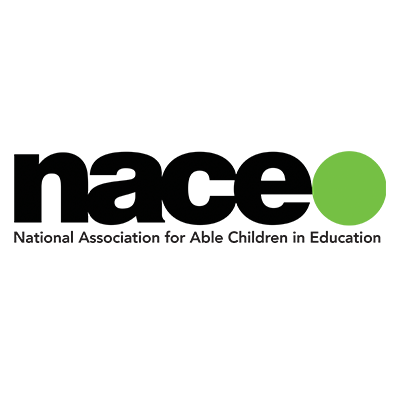How can you create cognitively challenging classrooms that make learners ‘think hard’ in lessons?
Delivered by NACE (the National Association for Able Children in Education), this live, interactive course explores how effective oracy, research behind effective questioning for all learners, and the theory behind developing learner independence helps create cognitively challenging classrooms for all learners. The course will take place over three sessions of three hours each: 28 January, 4 February, 11 February 2025, 09:00-12:00 GMT (UTC).
Description
This live, interactive course explores how to create a cognitively challenging environment for all learners in your classrooms.
Session 1 – How can Adaptive Teaching provide cognitive challenge in a mixed ability classroom?
- What do we learn from research about Adaptive Teaching to be effective in a mixed ability classroom?
- What does effective task design look like?
- How do we practically manage the mixed ability classroom effectively to cognitively challenge all learners?
Session 2 – How can you develop language and oracy to ensure cognitive challenge?
-
What do we learn from research about the role of language and oracy in developing cognitive challenge?
-
What can I do to promote effective oracy in my classroom?
-
What practical steps can I take to create a language rich, cognitively challenging classroom?
Session 3 – How can assessment and feedback promote cognitive challenge for all learners?
- What do we learn from research about effective assessment and feedback in developing cognitive challenge?
- How can I link effective assessment, feedback and low-stakes testing to create cognitive challenge?
- What practical feedback can I give in the classroom to develop cognitive challenge?
Additional information:
This interactive online course is delivered by NACE. Participant numbers are limited and early booking is recommended. This course will consist of presentations and practical examples on oracy, cognitive challenge, assessment and feedback, interspersed with breakout sessions and final takeaway reflections that can be applied in the classroom.
This course will run for three sessions of three hours each:
Session 1: 28 January 2025; 09:00-12:00 GMT (UTC)
Session 2: 4 February 2025; 09:00-12:00 GMT (UTC)
Session 3: 11 February 2025; 09:00-12:00 GMT (UTC)
Please note certificates will be issued to attendees.
Booking process:
Delegate fees:
£180 per COBIS Member delegate
£190 per Non-Member delegate
Please complete an online booking form by clicking 'register' at the top of this page.
If you are based in the UK, the delegate fee will be liable for VAT. Please email events@cobis.org.uk to process your registration.
If you are based outside the UK, but you are booking and paying for your place as an individual (rather than having the booking paid for by the school), you may also be liable for VAT. Please email events@cobis.org.uk to process your booking.
In all other situations, please tick the ‘organisation’ box when asked if the payee is an organisation or an individual.
Presenter
Christabel Shepherd
With over 30 years’ experience of teaching in both primary and secondary settings, Christabel Shepherd was most recently Executive Headteacher of Bradford’s Copthorne and Holybrook primary schools. She has extensive experience of leading on school-wide provision for more able learners and undertakes school and curriculum reviews, with a focus on improving provision forchallenge in the classroom.She is a National Leader of Education, leader of the Exceed SCITT English and Cognitive Theory programmes, facilitator for the NPQSL, Pupil Premium Reviewer, and a system leader of school-to-school support using and applying evidence-based research.
Dr Keith Watson
With over 30 years’ experience of working in educational settings, Dr Keith Watson draws on his experiences as a former MAT CEO, Teaching School Leader and published researcher. Keith has extensive experience of professional development, having delivered training to hundreds of teachers and leaders. Keith holds a Doctorate in Educational Leadership from Southampton University and regularly publishes articles on a range of educational issues. He is a Fellow of the Chartered College of Teaching.
Target audience:
Teachers, middle and senior leaders (including curriculum and subject leaders). All phases and subjects.
